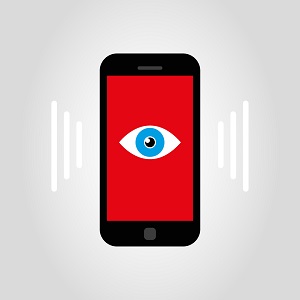Editor’s note: Aloshia Jackson is an M.B.A. student at Wayne State University’s School of Business. Recently, she examined Internet methods available to business to track consumer behavior. In her post, she also questions the ethical implications for business and privacy options for the individual online consumer.
![]() Advances in online technology over the years have tremendously impacted the way in which marketers obtain information in order to improve targeting, segmentation, reach and therefore profitability. It has also impacted the way products are marketed to consumers.
Advances in online technology over the years have tremendously impacted the way in which marketers obtain information in order to improve targeting, segmentation, reach and therefore profitability. It has also impacted the way products are marketed to consumers.
Such advances allows marketers to tailor ads and search results to the consumer based on activity storing cookies on consumer’s computers and other data collection methods. As a result, marketers are able to keep items of interest in front of the consumer rather than annoying advertisements, products, and services that the consumer is not interested in and provide a huge array of services to consumers. While there are many benefits to tracking and collecting data through modern day internet technology several concerns arise:
- Are companies using this technology to invade the privacy of consumers?
- Are companies making ethical decisions in their use of consumer information?
- Do consumers know what information is being collected from them?
Consumer concern over data collection and tracking by businesses online has continued to rise over the years. A survey conducted by data privacy management company; TrustE, found the following information:
- Of U.S. Internet users, 74 percent are more concerned about privacy than a year ago and more users cite business data collection, than government surveillance programs, as the reason for the increase in their concerns
- Approximately 47 percent were concerned about companies tracking their online behavior to target them with ads and content
How do businesses collect data from consumers?
 The most controversial method used to collect data from consumers is through the use of Internet cookies. Internet cookies are essentially text files that are stored on a user’s computer when they visit websites. Some cookies allow information such as usernames, location, and webpages browsed to be collected and stored. Some cookies can be deleted by the user from the Internet settings on their computer. Others can be deleted when the user ends the browsing session while others cannot be deleted and are constantly restored to the user’s computer even after they have deleted them. This type of tracking has raised several ethical concerns due to the type of information collected, the use of the data after it is collected, and the fact that some cookies are stored without consent.
The most controversial method used to collect data from consumers is through the use of Internet cookies. Internet cookies are essentially text files that are stored on a user’s computer when they visit websites. Some cookies allow information such as usernames, location, and webpages browsed to be collected and stored. Some cookies can be deleted by the user from the Internet settings on their computer. Others can be deleted when the user ends the browsing session while others cannot be deleted and are constantly restored to the user’s computer even after they have deleted them. This type of tracking has raised several ethical concerns due to the type of information collected, the use of the data after it is collected, and the fact that some cookies are stored without consent.
What type of data is collected from consumers?
Two types of consumer data are collected by businesses online:
- The first is Personal Identifying Information which includes information such as age, address, and name.
- The second is Non-Personal Identifying Information which includes information such as search history and purchases. Due to the increase in identity thefts and hacks across the world, consumers are naturally concerned about protecting Personal Identifying Information. However, consumers also have become very concerned about Non-Personal Identifying Information in recent years due to the increasing number of businesses being exposed for misusing consumer data, privacy violations by businesses, and unethical online marketing practices.
Unethical use of data tracking tools
![]() Unfortunately, concern over internet privacy still exists despite the implementation of data privacy laws such as the Data Protection Act. Some businesses have done more to support the need to for consumers to be concerned rather the prevent it. Let’s take a look at a couple of examples:
Unfortunately, concern over internet privacy still exists despite the implementation of data privacy laws such as the Data Protection Act. Some businesses have done more to support the need to for consumers to be concerned rather the prevent it. Let’s take a look at a couple of examples:
- ABC News reported a news story that revealed that the online travel agency Orbitz, marketed higher priced hotels to Mac computer users over PC users (watch the ABC News story ). The company used IP address data to determine what type of computer the user was on. While the company did not necessarily charge consumers a higher price for the same hotel, it did show higher priced hotels in the first search results ($20-$30 more per night). Is this fair to consumers? Orbitz collected data that revealed that Mac owners tend to have higher household incomes than PC user. Data further shows that ipad and iphone users also are willing to spend 17 percent more in mobile services than consumers using other phones. Consumers feel that retailers receive the most benefit from this use of collected data. With the use of online shopping increasing, there is more opportunity for consumers to be provided unequal pricing.
- Social media has become a primary source for promoting companies and brands and therefore attracting consumers to their websites. Between 2007 and 2010, retailers could publish consumer purchases to their Facebook profile without their consent by collecting data from the user’s computer on websites visited and purchases. In 2007, Overstock.com published the purchase of an engaged ring to a consumer’s profile without his consent. His friends, family, and future wife saw the post, which ruined the surprise proposal (read the story from the Washington Post). Facebook later changed this feature to allow consumers to opt in and out of sharing purchases on their Facebook profile. However, after problems continued to occur, the feature was eventually removed.
- In 2006, on-demand, Internet media streaming company, Netflix launched a contest to improve the business’ ability to recommend the right video to customers by 10 percent. For the contest, entrants were required to create and submit an algorithm and the best one would receive a $1 million prize. After implementation of the best algorithm, users were able to identify specific movies that users had rented or watched. Some Netflix users felt violated because they did not want certain movies they watched to be known by others. Movies that could reveal information about religion, sexual orientation, political views, social practices, etc. could cause disputes for some individuals. Lawsuits were filed against Netflix for this issue (read the CNN story).
- Taxi sharing service, Uber, collects and uses location and personal data to provide taxi services to users. Online data collection and sharing is how Uber quickly pinpoints locations and provides information to users about taxi location, routes, driver and customer information, destination, etc. Uber has come under scrutiny lately after one of the company’s executives admitted to using data collected from Uber’s database to locate and harass a reporter who had made negative comments about the company (read the Daily Buzz story). If Uber’s own executives can intentionally using this information to harm someone, who knows what else they may use consumer data for.
As demonstrated in the examples above companies, new and old, are using consumer data collected online to provide services to consumers. Unfortunately this is sometimes done at the expense of the consumer. Some businesses collect data from users without their consent, others use it for their own personal benefit, neglecting the overall good of the consumer. So yes, while advances in technology have significantly improved the way we carry out regular activities such as shopping, traveling and communicating, it comes with some risk of unethical activities and an invasion of privacy. Consumers should be concerned about how businesses use their information. With the increase in online shopping, marketing, communication, and sharing, it will be critical that consumers stay aware of how their personal data is being used by businesses.
References:
- http://www.ftc.gov/site-information/privacy-policy/internet-cookies
- http://www.truste.com/about-TRUSTe/press-room/news_us_truste_reveals_consumers_more_concerned_about_data_collection
- http://abcnews.go.com/Travel/mac-users-higher-hotel-prices-orbitz/story?id=16650014
- http://www.washingtonpost.com/wp-dyn/content/article/2007/11/29/AR2007112902503.html
- http://www.dailytech.com/Uber+Admits+Employees+Abused+God+View+Location+Tracking/article37010.htm



